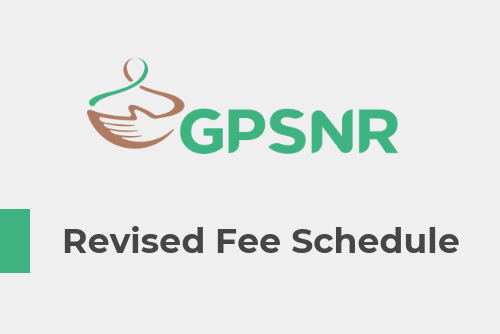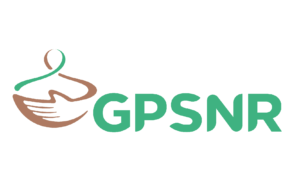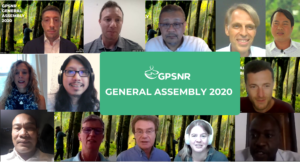The Executive Committee has approved revisions to the GPSNR Fee Schedule.
In accordance with the terms set out in the GPSNR Statutes, the new Fee Schedule will take effect from 23 February 2021.
To view the revised Fee Schedule, click here.

The Executive Committee has approved revisions to the GPSNR Fee Schedule.
In accordance with the terms set out in the GPSNR Statutes, the new Fee Schedule will take effect from 23 February 2021.
To view the revised Fee Schedule, click here.

Singapore, 15 June 2021: The Global Platform for Sustainable Natural Rubber (GPSNR) has unveiled the natural rubber industry’s first ever grievance mechanism. The process provides a platform to address complaints against its members. It also creates a space for collaboration, improved relations and amicable and meaningful solutions amongst stakeholders in the natural rubber value chain. In situations where this is not possible, the Grievance Mechanism offers recourse and seeks to ensure remedy is provided to impacted parties.
Members and non-members can now use this process to address existing concerns regarding a member’s violation of membership requirements or other guiding principles of the Platform. The mechanism seeks to provide transparency and predictability in the process and requires resolutions to be reached in a timely manner. It asserts particular emphasis on finding expedient and impartial resolution for high risk cases involving impact on communities or the environment, through the creation of a Complaints Panel. This panel will be made up of volunteer members, an external expert, and will judge whether and what kind of corrective actions need to be taken.
The process is comprehensive and risk-based, and is designed with the aim to bring parties to viable solutions and concrete remedy through a transparent process. ‘’The mechanism makes it possible for third parties to address issues with GPSNR members through an unbiased yet amicable process. The focus of the process will always be on finding solutions that work for everyone and provide both Complainants and Respondents with a transparent platform for resolution and accountability’’ said GPSNR Platform Director Stefano Savi.
In slightly over two years, GPSNR has established itself as a platform working towards systemic change in the natural rubber supply chain. The existence of a strong redressal process like this grievance mechanism showcases its commitment to a culture of fairness and transparency.
-Ends-
About GPSNR:
GPSNR is an international membership driven platform set up to define sustainability for the natural rubber value chain. It brings together various stakeholders to a common ground based on fairness, equity and environmental sustainability. GPSNR member companies account for almost 50% of the global natural rubber volume.
More on sustainablenaturalrubber.org
For more information, please contact:
Bani Bains
Communications Manager
Email: bani.bains@gpsnr.org
Ph: +65 97268165

GPSNR’s second General Assembly was opened by Director Stefano Savi, who wished everyone a warm welcome to the virtual event.
Next on the agenda was a message from Dr Gerd Müller, the German Federal Minister for Economic Cooperation and Development. The message was delivered via video by Sebastian Lesch, Head of Unit – International Agricultural Policy, Agriculture, Innovation, from the German Federal Ministry for Economic Cooperation and Development (BMZ). In his message, Dr Müller underscored BMZ’s support for GPSNR as a member and donor. He also urged all links in the natural rubber supply chain to continue to work towards comprehensive sustainability.
Stefano also took the opportunity to acknowledge and thank BMZ and other donor partners such as Partnerships for Forests (P4F), a UK aid funded program, for their continued support, as well as WBCSD and the Tire Industry Project for their support in the Platform’s launch phase.
The opening remarks were delivered by Segsarn Trai-Ukos, Chair of the GPSNR Executive Committee. In his remarks, Segsarn summarized the achievements of the Platform over the past 18 months, recognising the dedication and effort put in by members of the Working Groups and the Executive Committee despite the global pandemic. “We have accomplished much in our first 18 months, and I’m excited to see our continued progress as we move forward.” he concluded.
After the opening remarks, Stefano gave a Secretariat Update, showing how GPSNR has grown since the first General Assembly. Membership has almost tripled, and engagement remains high. On the Communications front, GPSNR maintains a global outreach with its website, and has seen an increase in social media followers, along with mentions and features by numerous media outlets. Stefano also touched upon GPSNR’s financial status, which he described as healthy.
The various Co-Chairs of the respective Working Groups then proceeded to give a brief update on what they have achieved so far, as well as the next steps. For a more detailed look at what comes next for our Working Groups, check out the article ‘The Road Ahead for GPSNR’s Working Groups’.
And finally, the moment everyone had been waiting for – the results of the voting.
The verdict for each resolution was revealed one at a time, with the number of votes for, against and abstained, displayed for each resolution. All proposed resolutions were passed with overwhelming majorities.
Up next to be revealed were the results of the Executive Committee elections. These were announced by category, with the elected representatives giving a short speech after being introduced. For a look at GPSNR’s second Executive Committee, check out our article ‘A First Look at GPSNR’s second Executive Committee’.
Lastly, Co-Chair of the GPSNR Executive Committee, Amy Smith, delivered some heartfelt words as part of her closing remarks. “We all have the responsibility to drive sustainability in the global marketplace because our forests, wildlife, climate, communities and businesses depend on it,” she said. “And GPSNR has the ability to effect that transformational change.”
© 2022 All rights reserved
Global Platform for Sustainable Natural Rubber

| Cookie | Duration | Description |
|---|---|---|
| cookielawinfo-checkbox-advertisement | 1 year | Set by the GDPR Cookie Consent plugin, this cookie is used to record the user consent for the cookies in the "Advertisement" category . |
| cookielawinfo-checkbox-analytics | 11 months | This cookie is set by GDPR Cookie Consent plugin. The cookie is used to store the user consent for the cookies in the category "Analytics". |
| cookielawinfo-checkbox-functional | 11 months | The cookie is set by GDPR cookie consent to record the user consent for the cookies in the category "Functional". |
| cookielawinfo-checkbox-necessary | 11 months | This cookie is set by GDPR Cookie Consent plugin. The cookies is used to store the user consent for the cookies in the category "Necessary". |
| cookielawinfo-checkbox-others | 11 months | This cookie is set by GDPR Cookie Consent plugin. The cookie is used to store the user consent for the cookies in the category "Other. |
| cookielawinfo-checkbox-performance | 11 months | This cookie is set by GDPR Cookie Consent plugin. The cookie is used to store the user consent for the cookies in the category "Performance". |
| PHPSESSID | session | This cookie is native to PHP applications. The cookie is used to store and identify a users' unique session ID for the purpose of managing user session on the website. The cookie is a session cookies and is deleted when all the browser windows are closed. |
| viewed_cookie_policy | 11 months | The cookie is set by the GDPR Cookie Consent plugin and is used to store whether or not user has consented to the use of cookies. It does not store any personal data. |
| Cookie | Duration | Description |
|---|---|---|
| ac_enable_tracking | 1 month | This cookie is set by Active Campaign to denote that traffic is enabled for the website. |
| Cookie | Duration | Description |
|---|---|---|
| _ga | 2 years | The _ga cookie, installed by Google Analytics, calculates visitor, session and campaign data and also keeps track of site usage for the site's analytics report. The cookie stores information anonymously and assigns a randomly generated number to recognize unique visitors. |
| _gat_gtag_UA_139883466_1 | 1 minute | Set by Google to distinguish users. |
| _gid | 1 day | Installed by Google Analytics, _gid cookie stores information on how visitors use a website, while also creating an analytics report of the website's performance. Some of the data that are collected include the number of visitors, their source, and the pages they visit anonymously. |
| CONSENT | 2 years | YouTube sets this cookie via embedded youtube-videos and registers anonymous statistical data. |
| Cookie | Duration | Description |
|---|---|---|
| NID | 6 months | NID cookie, set by Google, is used for advertising purposes; to limit the number of times the user sees an ad, to mute unwanted ads, and to measure the effectiveness of ads. |
| VISITOR_INFO1_LIVE | 5 months 27 days | A cookie set by YouTube to measure bandwidth that determines whether the user gets the new or old player interface. |
| YSC | session | YSC cookie is set by Youtube and is used to track the views of embedded videos on Youtube pages. |
| Cookie | Duration | Description |
|---|---|---|
| AWSALBTG | 7 days | No description available. |
| AWSALBTGCORS | 7 days | No description available. |
| FORMASSEMBLY | session | No description available. |
| GetLocalTimeZone | session | No description |
| prism_650657595 | 1 month | No description |